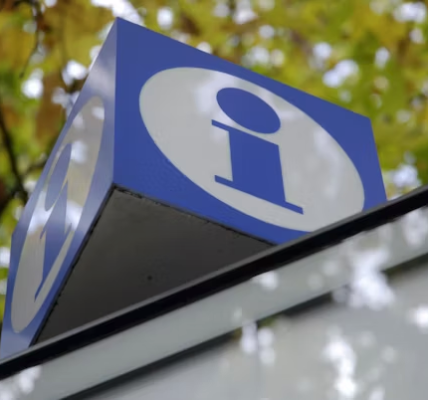Election betting has become an increasingly popular activity for many people around the world. From local elections to high-profile presidential races, individuals are keen to predict political outcomes and, in the process, try to profit from their predictions. But how does election betting work? What are the legal and ethical implications, and how can one make an informed bet? This article will explore these questions in-depth, offering insights into election betting markets, tips for making informed predictions, and the growing role of online platforms in shaping this unique market.

The Popularity of Election Betting
The surge in interest around election betting can be attributed to several factors. The following are some of the key reasons why people are increasingly drawn to this form of betting:
Engagement with Politics
Political events, especially elections, are inherently exciting. They hold significant implications for a nation’s future. For many, the chance to bet on an election outcome adds another layer of excitement. Not only do bettors feel personally involved, but they are also participating in the broader conversation surrounding an election.
Access to Information
The availability of information on political candidates, party platforms, polls, and the political landscape makes it easier for bettors to make informed decisions. With more data at hand, bettors can make more educated wagers, increasing the appeal of election betting.
Online Betting Platforms
Thanks to advancements in technology, election betting has become more accessible through online platforms. Numerous websites offer dedicated election betting markets, allowing people to place bets from the comfort of their own homes. Popular platforms like Betfair, PredictIt, and Smarkets have made it simple to engage with political betting markets.
Global Reach
Election betting is not limited to one country. International elections, such as the U.S. Presidential election or the UK general elections, attract global bettors. This has turned election betting into a global market, where people from different countries bet on political outcomes far from their own borders.
How Election Betting Works
Election betting is based on probabilities and market dynamics. Bettors place their money on which candidate or party they think will win the election. These odds are influenced by various factors, including polling data, public sentiment, historical trends, and the political environment.
Understanding the Odds
In election betting, odds typically appear in the following formats:
Decimal Odds: A simple representation of how much you can win for each unit bet. For example, a decimal odds of 2.50 means that for every $1 wagered, you stand to win $2.50.
Fractional Odds: Popular in the UK, fractional odds show how much you can win relative to your stake. For instance, odds of 5/1 mean that for every $1 wagered, you win $5.
Moneyline Odds: Common in the U.S., moneyline odds show how much you need to bet in order to win a particular amount. For example, odds of +200 mean you can win $200 by betting $100.
The Role of Polls and Data
Polling data plays a significant role in determining the odds of a candidate’s victory. Polls are used to predict voter preferences, which are then reflected in the odds. A candidate who is leading in polls will typically have lower odds, indicating a higher probability of winning. Conversely, a candidate trailing in the polls will have higher odds, reflecting the market’s uncertainty about their chances.
Betting on Political Events
In addition to betting on the overall winner of an election, bettors may also engage in more specific wagers. These include:
First-Past-the-Post Markets: These bets focus on who will win specific regions, states, or districts in an election.
Party Majority Markets: Bettors can wager on which party will hold a majority in a parliament, congress, or legislature.
Exit Polls and Debates: There are markets for events such as which candidate will win a particular debate or whether an exit poll will show a certain result.
Risks and Challenges of Election Betting
While election betting can be an exciting and potentially profitable pursuit, it is not without its risks and challenges. Bettors should carefully consider the following factors before placing any wagers.
Volatility
The odds in election betting are highly volatile. As political events unfold, polling data may shift, and public opinion can change rapidly. This volatility can lead to significant fluctuations in odds, making it difficult to predict an outcome with certainty.
Legal and Ethical Concerns
In some countries, election betting may be illegal or heavily regulated. Bettors should ensure they are aware of the legal landscape surrounding political betting in their jurisdiction before engaging in the market. Additionally, the ethics of election betting are often debated. Some argue that it encourages gambling on issues of national importance, while others view it as a legitimate form of entertainment.
Bias and Misinformation
In the age of social media and fake news, misinformation can play a significant role in shaping public opinion. Bettors who rely solely on unreliable sources may make inaccurate predictions. Therefore, it is essential to gather information from credible sources and avoid falling prey to biases or misleading narratives.
Market Manipulation
Election betting markets are susceptible to manipulation by individuals or organizations seeking to influence the odds for their advantage. Bettors should be cautious of artificially inflated or deflated odds that may not accurately reflect the true probabilities of an outcome.
In Summary
Election betting has become a widespread activity, offering both excitement and potential profits to those who are well-informed and willing to engage with the market. Whether betting on the outcome of presidential races or more localized elections, participants must be mindful of the risks involved. By conducting thorough research, understanding the odds, and selecting reputable betting platforms, bettors can increase their chances of success. However, it’s crucial to approach election betting with caution and always be aware of legal, ethical, and financial considerations.
FAQs
What is Election Betting?
Election betting involves placing wagers on the outcome of political elections, including who will win or the performance of specific candidates, parties, or policies. It operates much like sports betting, with odds that reflect the likelihood of a specific outcome. Bettors can engage in markets for various elections, from local contests to national races, including presidential elections.
Is Election Betting Legal?
The legality of election betting varies depending on your country and the platform you’re using. In some countries, betting on elections is legal and regulated, while in others, it may be prohibited. For example, election betting is legal in the UK and many European countries but may be restricted in places like the United States or India. Always check the local regulations and terms of the platform before placing a bet.
How Do Election Betting Odds Work?
Election betting odds are similar to those found in sports betting. They reflect the probability of a candidate or party winning. If a candidate has low odds, they are seen as the favorite, and if they have high odds, they are considered an underdog. Odds change dynamically based on political events, polls, and betting patterns. You can find different formats for odds, including decimal, fractional, and moneyline formats.
Can I Bet on Elections Months in Advance?
Yes, many betting platforms offer markets on elections well before the actual voting takes place. You can place bets months in advance based on early polling data, political developments, and campaign strategies. However, keep in mind that odds will likely change as more information becomes available, and events unfold.
How Accurate Are Election Polls in Predicting Outcomes?
Election polls can provide valuable insight, but they aren’t always fully accurate. While polls measure public opinion, various factors—such as voter turnout and last-minute changes in sentiment—can influence the final result. Additionally, polling methods and sample sizes can vary, so it’s essential to consider multiple sources when making predictions. It’s wise to avoid relying solely on polls when placing a bet.
Can I Make Money from Election Betting?
It’s possible to make money from election bettings, but it requires knowledge of the political landscape, careful research, and an understanding of odds. Betting on political events can be volatile, and outcomes can be unpredictable. If you rely on well-researched insights, stay informed on current events, and manage your bets responsibly, you can increase your chances of success.
To read more, click here



